
Anti-Semitism in Switzerland
Anti-Semitic prejudices tend to rise to the surface during crises. Switzerland has a history of this kind of discrimination, whether it be the sudden outbreak of anti-Jewish stereotypes many years ago or in discussions surrounding the dormant assets of Jewish Holocaust victims.
“As seen centuries ago, the [Covid-19] pandemic is bringing anti-Semitic clichés to the surface,” declared Jonathan Kreutner, secretary general of the Swiss Federation of Jewish Communities (FSCI) in 2021, the middle of the Covid-19 health crisis.
That year, the FSCI and the Federal Commission against Racism (FCR) published a report on anti-Semitism showing that Jewish people continue to be singled out when times are difficult. “As in the past, Jews are very quickly identified as culprits,” it stated.
Anti-Semitic stereotypes appear regularly in Switzerland. According to a 2020 survey by the Federal Statistical Office, 39% of the Swiss population resort to the use of Jewish stereotypes as people who are power-hungry, money-grabbers or politically radical.
Dormant fund debate heats up
Closer study of Swiss refugee policy during the Second World War reveals that from the end of the 19th century the treatment of Jewish people was shaped by immigration strategies aimed at protecting the country from “Jewish foreign overpopulation”.
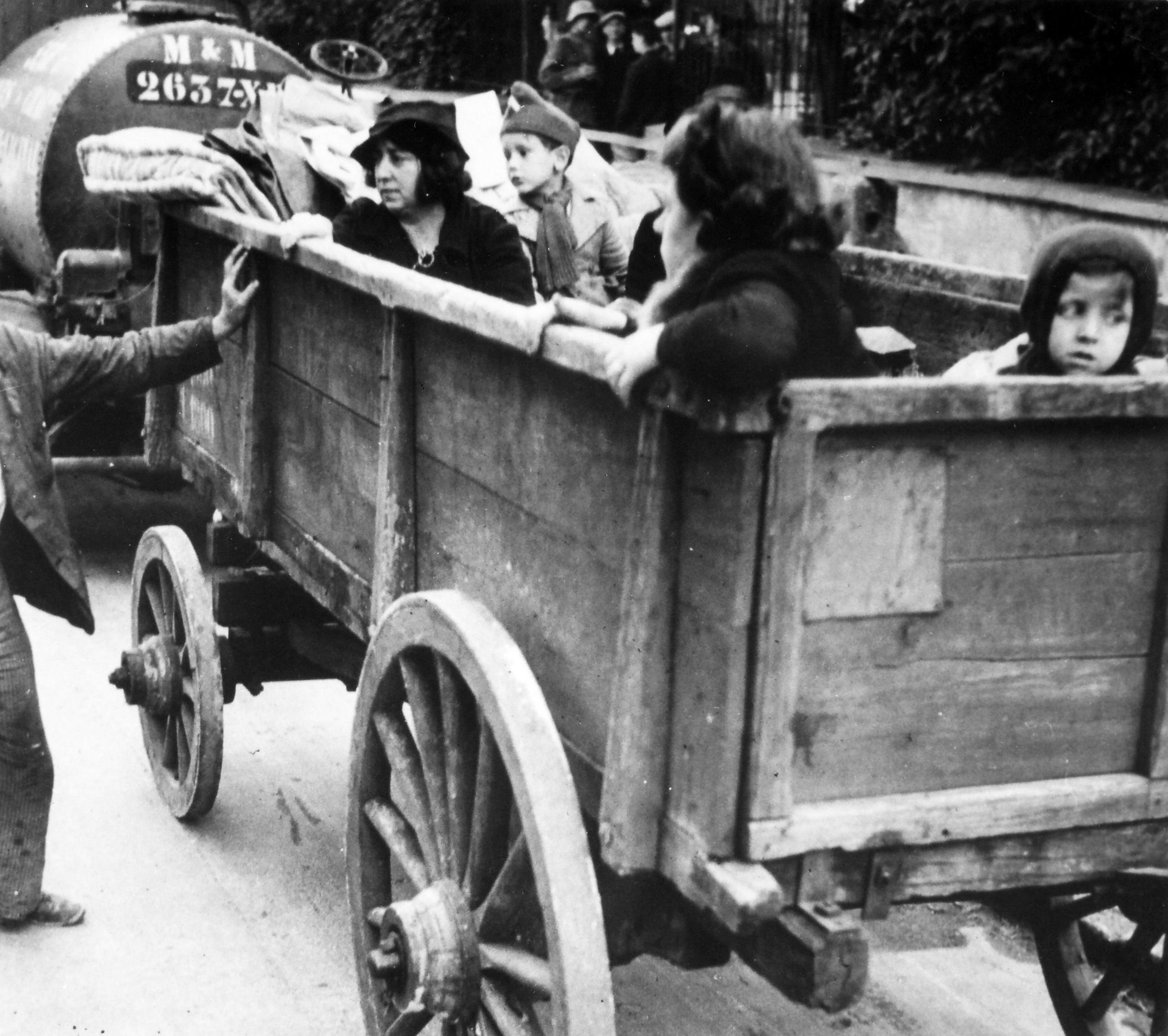
More
‘The boat is full’: 75 years later
Despite the publication of the first newspaper articles about the Holocaust in the 1960s, for years the Shoah remained a non-issue in Switzerland. However, in 1995 Switzerland’s past caught up with it. It began with a legal complaint filed in the United States by Holocaust survivors who had been unable to access Swiss bank accounts that belonged to them.
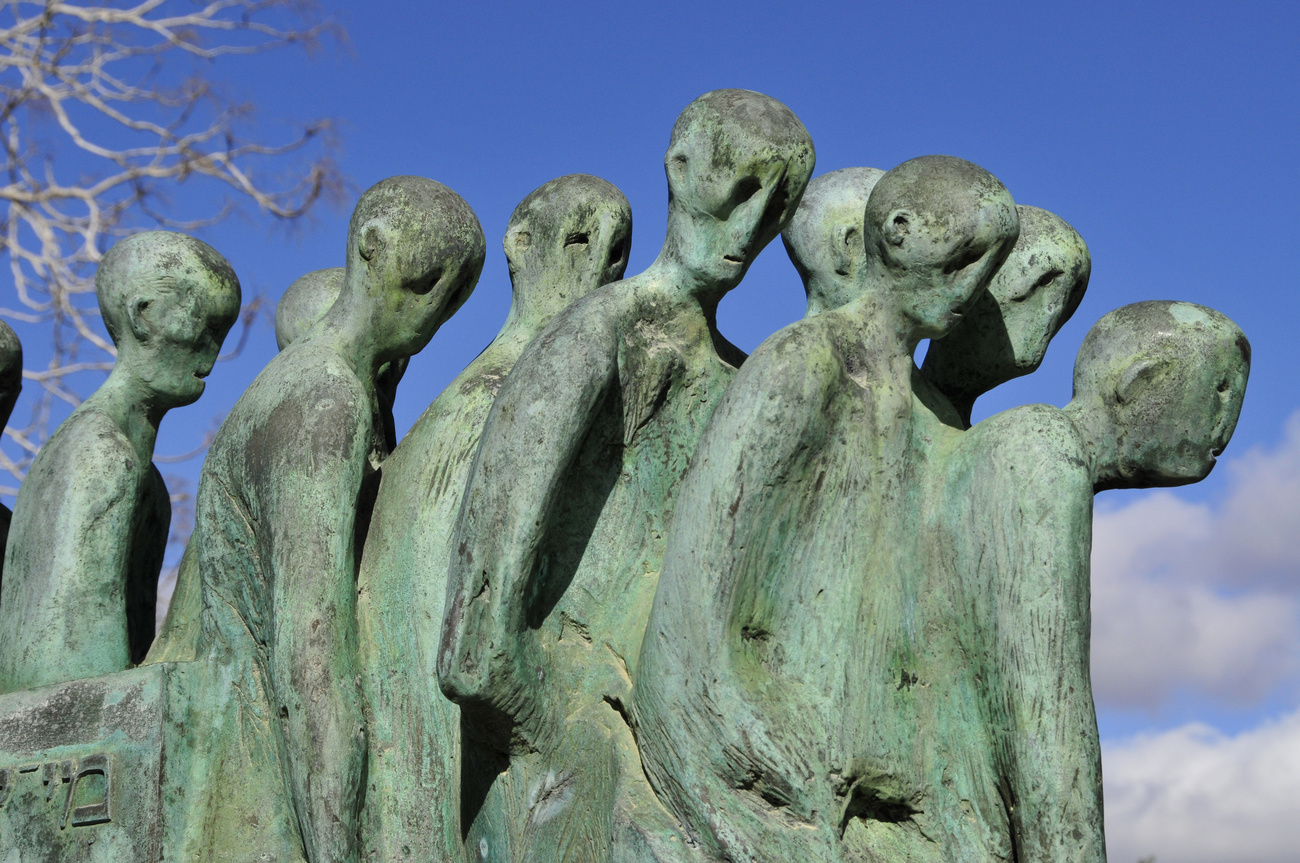
More
Swiss make slow progress on Holocaust remembrance
Swiss banks finally agreed to pay CHF1.25 billion ($1.26 billion) in compensation to the victims of the Holocaust and their descendants. This was followed by unprecedented research into the history of Switzerland during the Second World War – the Bergier report.

More
How the Holocaust-Swiss banks deal was brokered
Switzerland was however divided over the issue: in a poll carried out in 1997 by the Swiss Broadcasting Corporation, SWI swissinfo.ch’s parent company, 53% of those questioned said the demands made on Switzerland were totally legitimate, but 47% thought they should be rejected.
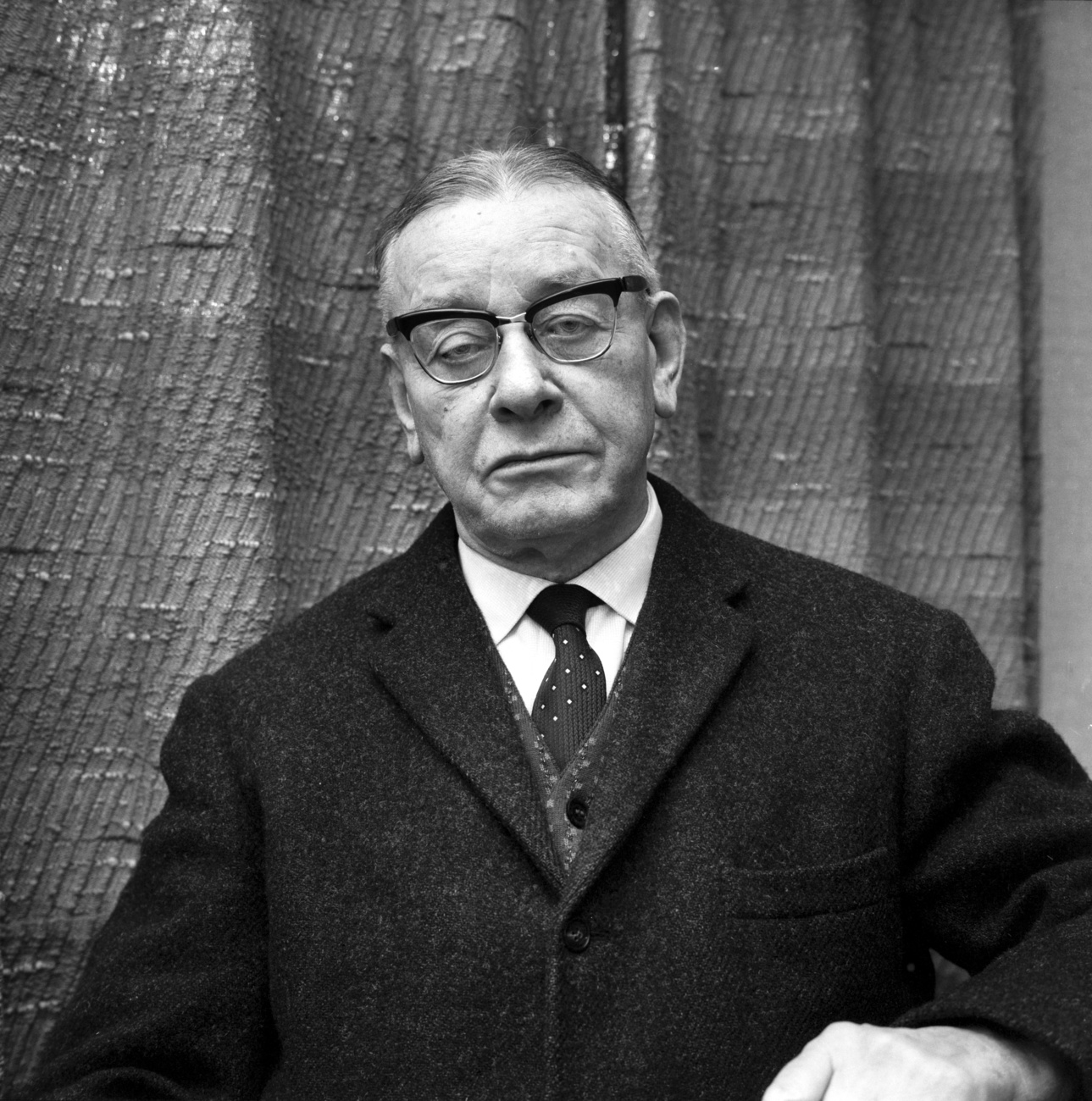
More
Switzerland is still grappling with dark chapters of its history
Former cabinet minister Jean-Pascal Delamuraz resorted to anti-Semitic stereotypes to describe foreign demands as “blackmail… from certain circles” who wanted to “destabilise” the Swiss financial industry. He was applauded for his comments in many newspapers’ readers’ sections.
The Federal Commission against Racism noted at the time that anti-Semitic sentiment, which had previously only existed in the background, had become much more vivid during the debate.
The origins of anti-Semitism
The tales that fuelled hatred of the Jews originated in Europe in the High Middle Ages (around the late 10th to early 14th centuries) and led to the persecution and destruction of Jewish communities, including in Switzerland. Anti-Semitism in Europe was motivated by religious and economic factors – images that still circulate today. At the time Jews were accused of being carriers of disease and child-killers and were persecuted as loan sharks. In the 15th century, Jews were expelled from most towns in the Swiss Confederation, as in the rest of Europe.
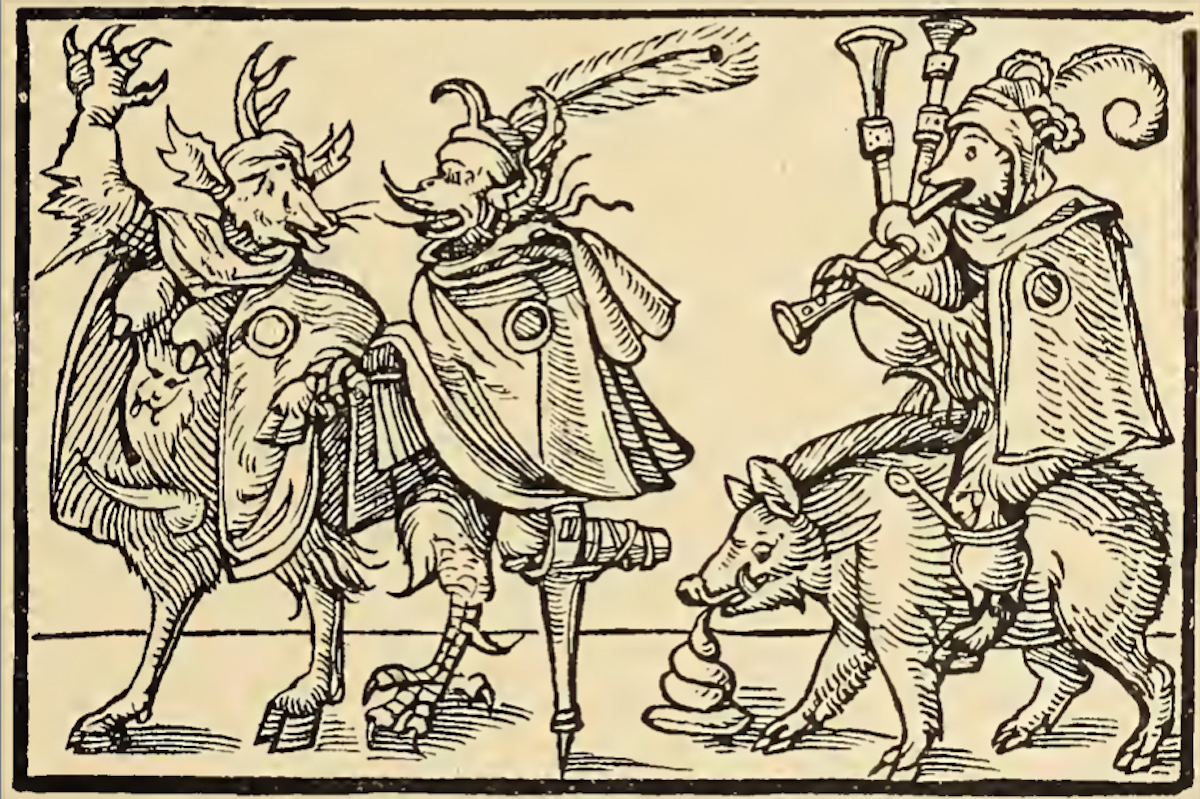
More
How Christian Europe created anti-Semitism in the Middle Ages
The recognition of Jews as Swiss citizens with equal rights met resistance until the 19th century. Jewish people were vilified as the descendants of Judas. Up until 1866, they were legally considered as foreigners in Switzerland. Compared with other European countries, their emancipation came relatively late.

More
An anti-Jewish revolt in an enlightened country
Hatred towards Jewish people evolved from religious intolerance to an explanation for modern problems. Jews were blamed for unwelcome changes and the ancient image of the greedy Jew was adapted to the times.
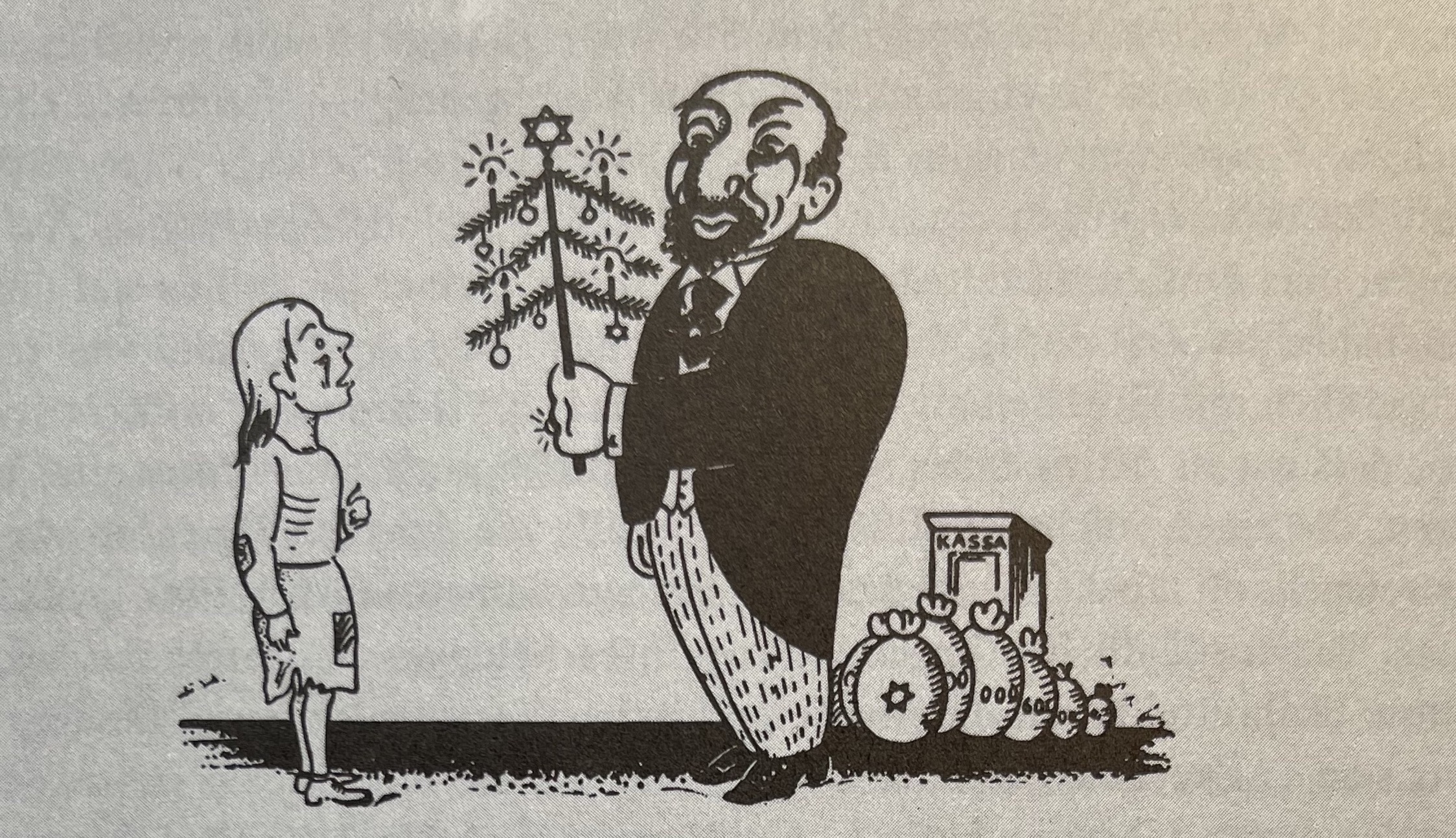
More
How anti-Semitism fuelled early opposition to department stores
Anti-Semitism is not associated with any particular political orientation or social class. Even left-wing criticism of Israel sometimes crosses the line.

More
Anti-Semitism in the Swiss left – still a taboo?
“A toxic mix can emerge if you don’t objectively criticise Israel’s policies and hypothesise that immoral behaviour has a direct link with Jewishness”, says Erik Petry, the deputy head of the Centre for Jewish Studies at the University of Basel. He has seen some examples of this venomous mix among people on the left.
“Anti-Semitism is a master of metamorphosis,” says Dina Wyler, managing director of the Foundation against Racism and Anti-Semitism. “It adapts to the current narrative and often comes to the surface by way of images or buzzwords. In this way it remains ‘socially acceptable’”.

In compliance with the JTI standards
More: SWI swissinfo.ch certified by the Journalism Trust Initiative